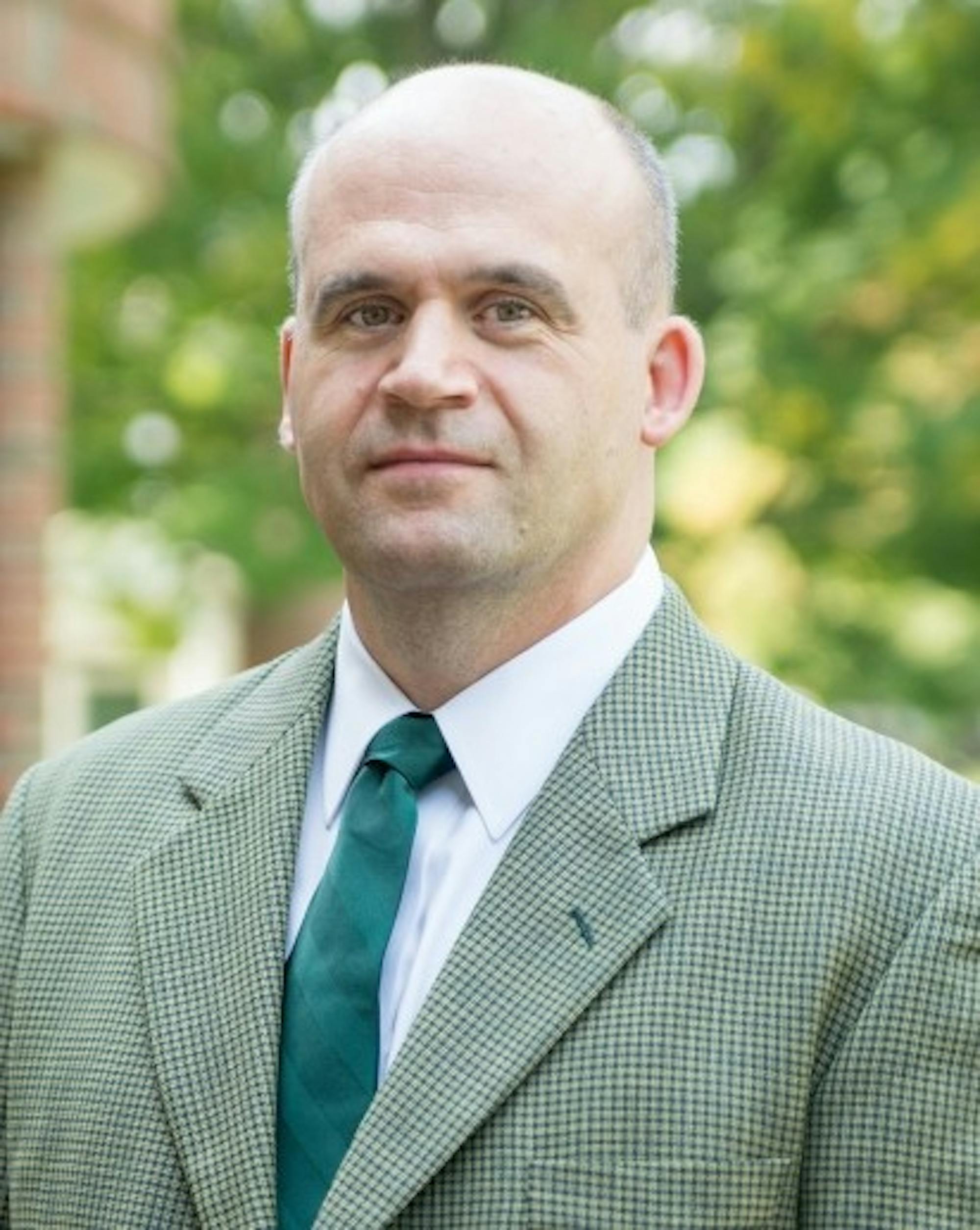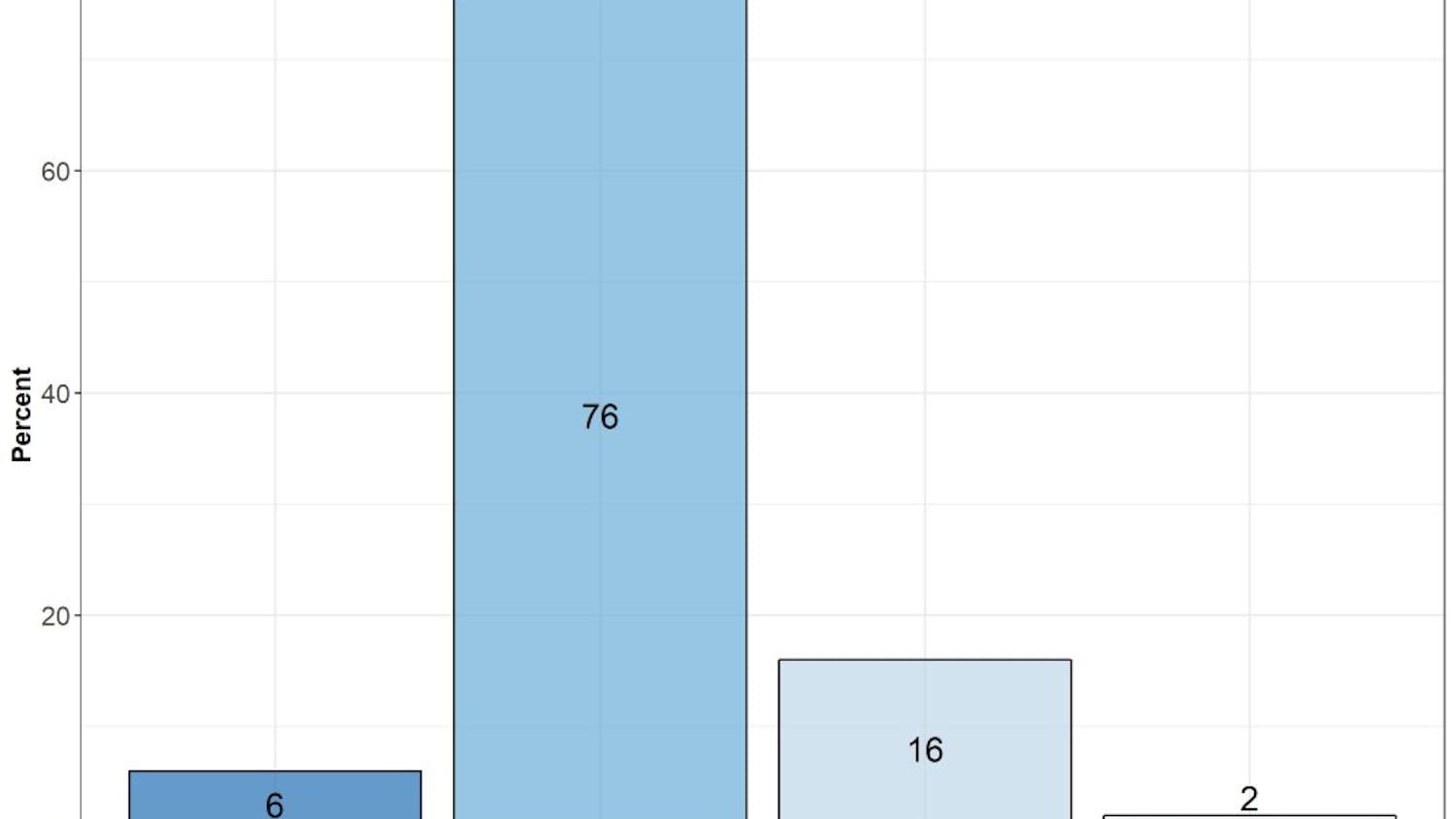As 2020 and its looming presidential election approach and Democratic debates continue through the fall, the topics of government and politics are becoming more prevalent in conversations on campus, with students striving to solidify their own views on various issues and policies.
While I often discuss politics and policy-related topics with friends, I’m not frequently exposed to viewpoints that are really different from my own given that my friends and I mostly share similar perspectives.
From an academic standpoint, I have been curious as to how the government department encourages students to share different kinds of political views. To learn more, I spoke with government professor Lucas Swaine, whose expertise includes law and ethics, political theory and liberalism. His classes on these subjects include introductory class GOVT 6, “Political Ideas,” as well as seminars such as GOVT 86.03, “Contemporary Political Thought” and GOVT 86.01, “Multiculturalism.” Swaine is also currently conducting research regarding freedom of thought and how humans can respectfully interact with those who do not share similar perspectives on politics or about life in general.
Can you introduce yourself?
LS: I’m an associate professor of government here at Dartmouth. I’m of Canadian extraction, was born in Ottawa, raised in Winnipeg, Manitoba and have been at Dartmouth since 2001.
Do you think that Dartmouth generally provides an inclusive environment for students? Have you seen it improve over the course of your time here?
LS: My sense has been that there is both increasing focus on inclusivity and increasing efforts to have greater inclusivity, as well as increasing awareness with problems of bias — and also, I suppose, increasing efforts to diminish it. I think it’s fair to say that we as a department aim to be inclusive and welcoming to people of different backgrounds and people of different kinds of outlooks and lifestyles and commitments and so forth.
We encourage that, we value it, we’re not threatened by it and we plan to continue to embrace and to celebrate it.
How do you believe the government department promote inclusivity?
LS: I think we try, first of all, to have instructors who are interested in bringing a diversity of viewpoints and approaches to the topics that they study in the classroom. I would also say that people in the government department try to be conscious and thoughtful about how they not only construct their syllabi, noting the ideas and authors and voices they include but also being clear about whom they do not. Sometimes there are pedagogical reasons for focusing on one stream of sources or resources, but in terms of course materials and approaches to thinking and so forth, that’s where we and a lot of the curricular side of efforts to be more inclusive.
Within the scope of your own classes, how do you encourage inclusivity and try to reduce the amount of bias that might come into play during classroom interactions?
LS: I try to make sure that individuals are treated as full equals with due respect and that their actual opinions and ideas and ruminations on subjects are included in discussion and taken seriously. That’s one important component of inclusivity — making sure people can express themselves, and not only that they express themselves, but that their views are taken seriously and reflected upon.
As for bias, there are numerous ways in which bias can enter. One thing that, at least in my case, I try to do is not only not tell people what to think about different subjects but also not reveal what I think about different subjects so that students can feel more at liberty to form their own views without trying to match them up with some sense of what the professor might be thinking or want them to think.
Can you tell me more about the research you’ve done related to the topics of inclusivity
and bias in political thought?
LS: The current project I’m working on — which is a large project on freedom of thought with some independent book chapters and journalism articles in it that I plan to draw together as a book — does speak to questions of diversity, inclusion, bias and so forth. For example, that particular project considers, among other things, how we should, as democratic citizens, treat other people who think differently from the way we do and what sorts of things individuals or groups or political institutions could rightfully do to try to encourage people to speak their minds. By the same token, the freedom of thought project also considers the limits on how far government or individual parties or groups can go to get you to engage in discussion, reveal your thoughts, change your thinking and so forth.
I’ve done previous work on freedom of conscience and uncommon religious communities and people with uncommon religious views in pluralistic democracies. A lot of the work that I do pertains to a world in which you and a multiplicity of kinds of people, different doctrines, different ideas of what’s good in life and so forth, and that diversity really is something to be appreciated and supported for a variety of different reasons. There, too, I’m indirectly trying to address some of these issues. The book that I have coming out in early 2020 is actually about unhealthy forms of individuality — harmful or toxic forms of living that are dangerous and damaging to other people — and, in fact, how to mitigate those problems so that the rest of us can get along well together.
This article has been edited and condensed for clarity and length.



